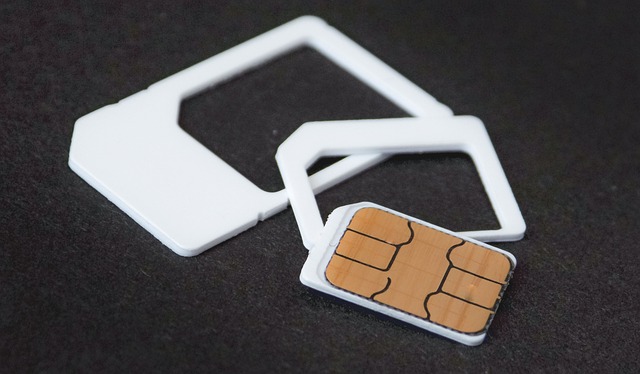Which Cell Phone Plan is Right For You?
Choosing a cell phone plan can feel confusing with so many carriers, bundles, and hidden fees. This guide breaks it down — comparing prepaid, unlimited, and family plans to help you find the one that fits your budget and lifestyle. Learn how to balance data needs, coverage, and perks so you can stay connected without overpaying.

Choosing the right cell phone plan depends on several factors including how much data you use, whether you want a contract or flexibility, and who will be using the service. With carriers offering everything from basic talk and text to unlimited data packages, it helps to understand what each plan type offers and how it aligns with your daily needs. Evaluating your usage patterns, budget, and family requirements can streamline the decision-making process and prevent overpaying for features you don’t need.
How to Choose the Best Cell Phone Plan for Your Needs
The first step in selecting a cell phone plan is assessing your actual usage. Consider how much data you consume monthly, whether you primarily use Wi-Fi, and if you make frequent calls or send many texts. Light users who stay connected to Wi-Fi most of the day may only need a few gigabytes of data, while heavy streamers and remote workers often require unlimited plans. Additionally, think about coverage in your area. A plan with excellent pricing means little if the network signal is weak where you live, work, or travel. Check coverage maps from major carriers and read reviews from users in your region to ensure reliable service.
Another important consideration is whether you prefer a contract or month-to-month flexibility. Traditional postpaid plans often come with device financing options and perks like premium streaming subscriptions, but they lock you into a commitment. Prepaid plans offer more freedom and can be more budget-friendly, though they may lack some of the extras. Evaluate your financial situation and how long you plan to stay with a carrier before committing.
Compare Prepaid and Unlimited Phone Plans
Prepaid and unlimited plans serve different needs and come with distinct advantages. Prepaid plans require payment upfront for a set amount of talk, text, and data. They offer no contracts, no credit checks, and complete control over spending. This makes them ideal for budget-conscious users, people with inconsistent income, or those who want to avoid surprise bills. However, prepaid plans may offer lower priority on network traffic during congestion and fewer premium features.
Unlimited plans, on the other hand, provide peace of mind with no data caps. Users can stream, browse, and download without worrying about overage charges. These plans often include additional perks such as mobile hotspot data, international texting, and subscriptions to entertainment services. The trade-off is higher monthly costs and potential throttling after reaching certain data thresholds. Some unlimited plans also deprioritize data during peak usage times, which can slow speeds in crowded areas. Understanding these differences helps you weigh convenience against cost and flexibility.
Family and Senior Cell Plan Options
Family plans bundle multiple lines under one account, offering significant savings compared to individual plans. Most carriers provide discounts when you add two or more lines, and some include perks like shared data pools or unlimited plans for all users. Family plans simplify billing and management, making them convenient for households. When choosing a family plan, consider the data needs of each user. If some family members are light users while others stream constantly, look for plans that allow customization per line or offer unlimited data across the board.
Senior cell plans cater specifically to older adults who may have simpler needs. These plans often feature lower data allowances, straightforward pricing, and customer service tailored to less tech-savvy users. Some carriers offer discounted rates for seniors, typically starting at age 55 or 65. Features might include easy-to-use phones, larger text displays, and emergency assistance options. Seniors who primarily use their phones for calls and occasional texting can save considerably with these specialized plans while still enjoying reliable coverage.
Real-World Pricing and Plan Comparisons
Understanding the cost landscape helps you budget effectively and compare options. Below is a comparison of typical cell phone plan offerings from major carriers in the United States. These prices reflect standard rates and may vary based on promotions, autopay discounts, and regional availability.
| Plan Type | Provider | Monthly Cost Estimation |
|---|---|---|
| Prepaid Basic (3-5GB) | Major Carrier A | $30 - $40 |
| Prepaid Unlimited | Major Carrier B | $50 - $60 |
| Postpaid Unlimited (Single Line) | Major Carrier C | $70 - $85 |
| Family Plan (4 Lines, Unlimited) | Major Carrier D | $120 - $160 total |
| Senior Plan (55+, Unlimited) | Major Carrier E | $50 - $70 for 2 lines |
Prices, rates, or cost estimates mentioned in this article are based on the latest available information but may change over time. Independent research is advised before making financial decisions.
Additional Considerations When Selecting a Plan
Beyond pricing and data, other factors influence your decision. Device compatibility matters if you plan to bring your own phone. Not all phones work on every network, so verify compatibility before switching carriers. International features are important for frequent travelers. Some plans include free texting and data in certain countries, while others charge hefty roaming fees. Customer service quality varies widely among carriers. Research reviews and ratings to understand how responsive and helpful each provider is when issues arise.
Contract terms and hidden fees also deserve attention. Some plans advertise low prices but add taxes, activation fees, and device charges that inflate the final bill. Read the fine print and ask about all potential costs upfront. Finally, consider future needs. If you anticipate changes in usage, such as starting a new job that requires more data or adding family members to your plan, choose a carrier that offers easy upgrades and flexible options.
Making Your Final Decision
Choosing the right cell phone plan requires balancing cost, coverage, features, and flexibility. Start by analyzing your usage habits and determining whether a prepaid or unlimited plan suits your lifestyle. If you have a family, explore bundled options that offer savings and convenience. Seniors should investigate age-specific discounts and simplified plans. Always compare multiple carriers, read customer reviews, and verify coverage in your area before committing. By taking the time to research and understand your options, you can select a plan that meets your needs without overspending, ensuring reliable connectivity and value for your money.




